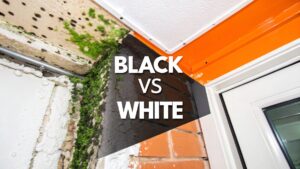
Identifying water damage early can save homeowners from extensive repairs and costly renovations. Common signs include discoloration on walls or ceilings, peeling paint, and a musty odor. Homeowners should regularly inspect areas prone to moisture, such as basements, bathrooms, and around windows, to catch issues before they escalate.
In addition to visual cues, homeowners should be aware of changes in their water bills, which may indicate leaks. If you notice unexplained spikes, it may be time to investigate further. Regular maintenance and vigilance can help mitigate the risks associated with water damage.
For minor mold issues, homeowners can employ effective DIY techniques to remove mold safely. Using a mixture of water and detergent, or a solution of vinegar and baking soda, can help eliminate mold from surfaces. It’s essential to wear protective gear, such as masks and gloves, to prevent inhalation of spores during the cleaning process.
After cleaning, ensure the affected area is thoroughly dried to prevent mold from returning. Homeowners should also consider using dehumidifiers in damp areas to maintain low humidity levels, which discourage mold growth. Regularly checking for leaks and moisture can further prevent mold infestations.
Home restoration costs can vary significantly based on the extent of damage and the type of restoration needed. It’s crucial for homeowners to obtain multiple quotes from contractors to ensure fair pricing. Understanding the factors that contribute to costs, such as materials, labor, and project complexity, can help homeowners budget effectively.
Additionally, homeowners should be aware of potential hidden costs, such as permits or unexpected structural repairs that may arise during the restoration process. Planning ahead and setting aside a contingency fund can help mitigate financial stress associated with home restoration projects.
Having the right tools on hand can make home restoration projects more efficient and effective. Essential tools include a wet/dry vacuum for water removal, a moisture meter to assess dampness levels, and basic hand tools like hammers, screwdrivers, and pliers. Investing in quality tools can save time and effort during restoration tasks.
Additionally, specialized equipment like air scrubbers and dehumidifiers can be invaluable for larger restoration projects, particularly those involving water damage or mold remediation. Homeowners should familiarize themselves with these tools and consider renting them for specific tasks to ensure successful restoration outcomes.